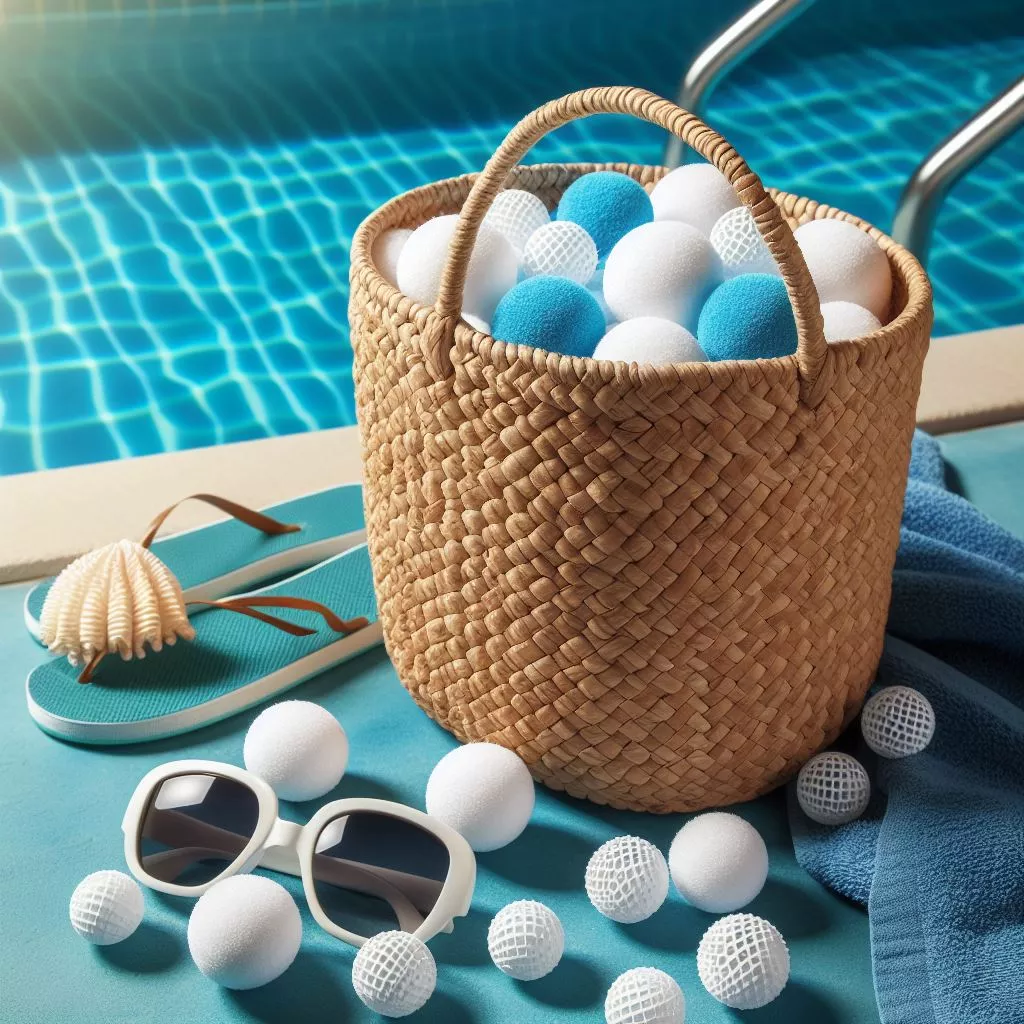In recent years, pool filter balls have gained popularity as a cost-effective and environmentally friendly alternative to traditional pool filter media. However, their misuse can lead to various issues that pool owners may not be aware of. In this article, we’ll explore common problems associated with improper pool filter ball use and provide practical solutions to ensure a crystal-clear swimming experience.

Inadequate Filtration
One of the primary purposes of pool filter balls is to capture impurities and debris, ensuring clean and clear water. Improper use, such as overloading the filter system or using insufficient quantities of filter balls, can result in inadequate filtration. This can lead to cloudy water, decreased water quality, and potential health hazards for swimmers.
Solution: Regular Inspection and Proper Quantity
To address this issue, pool owners should regularly inspect their filter system and ensure an adequate quantity of filter balls is used. Follow the manufacturer’s recommendations for the correct amount based on the pool size. Regularly cleaning and replacing filter balls will also contribute to optimal filtration efficiency.
Reduced Water Flow
Improperly placed or compacted filter balls can restrict water flow within the filtration system. Reduced water flow not only affects filtration but also puts a strain on the pool pump, potentially causing long-term damage.
Solution: Proper Placement and Fluffing
Ensure that the filter balls are evenly distributed within the filter basket or cartridge. Avoid over-packing, as this can hinder water flow. Periodically fluffing the filter balls helps maintain their effectiveness by preventing compaction. This simple practice can significantly improve water circulation and extend the life of your pool equipment.
Altered Water Chemistry
Pool filter balls, when used incorrectly, can impact the chemical balance of the pool water. This may result in issues such as pH imbalances, high chlorine demand, and increased susceptibility to algae growth.
Solution: Monitor and Adjust Chemical Levels
Regularly test and monitor the chemical levels in your pool water. Adjust the pH, chlorine, and other chemical levels according to recommended guidelines. Properly filtered water allows the chemical treatments to work efficiently, maintaining a healthy and balanced swimming environment.
Environmental Impact
While pool filter balls are often touted as an eco-friendly option, their misuse can have unintended environmental consequences. Overused or deteriorating filter balls may release microplastics into the pool water, contributing to water pollution.
Solution: Responsible Disposal and Replacemen
Dispose of filter balls responsibly when they reach the end of their lifespan. Many manufacturers provide guidance on environmentally friendly disposal methods. Regularly replace filter balls as recommended to ensure their effectiveness and prevent potential environmental harm.
Increased Energy Consumption
Inefficient filtration due to improper use of pool filter balls can lead to increased energy consumption. A clogged or overloaded filtration system forces the pool pump to work harder, consuming more energy and potentially raising utility costs.
Solution: Optimize Filtration System Settings
Regularly check and optimize the settings of your filtration system. Ensure that the pump is running at the recommended flow rate and duration. By maintaining an efficient filtration system, you not only save energy but also prolong the lifespan of your pool equipment.
Conclusion
While pool filter balls offer an excellent alternative for pool filtration, their benefits can only be realized through proper use and maintenance. By addressing issues such as inadequate filtration, reduced water flow, altered water chemistry, environmental impact, and increased energy consumption, pool owners can enjoy a clean and inviting swimming pool. Regular maintenance, adherence to manufacturer guidelines, and responsible usage are key to unlocking the full potential of pool filter balls and ensuring a delightful aquatic experience for all.

 Instant
Quote
Instant
Quote Email
Us
Email
Us